#Igbo names
Text

In the traditional Ohafia Igbo community, women retain their maiden names (i.e., first names plus fathers' first names) after marriage.

#igbo#african#igbo names#igbo woman#afrakan#kemetic dreams#brownskin#afrakans#africans#brown skin#african culture#afrakan spirituality#ohafia#ohafia igbo
84 notes
·
View notes
Text
Understanding the Concept of Chi in Igbo Names
Written by Esther omoyeOkwu ID
A look at the Concept of Chi
The concept of Chi in Igbo culture is complex and has led to various interpretations and translations. It has been seen as the personal life force, guardian angel, creator, companion, individual providence, and portioned-out life principle. Additionally, it’s been interpreted as a person’s deity or identity in the spirit world,…

View On WordPress
6 notes
·
View notes
Text
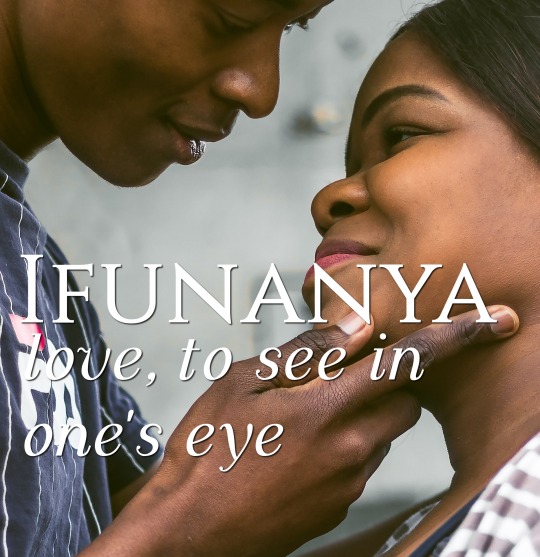
Ifunanya - f (Igbo) love, to see in one's eye
From Igbo n'anya, meaning "love", which is from anya, meaning "eye, sight".
Photo by Innoh Khumbuza from Pexels
#Igbo names#feminine names#love names#eye names#sight names#vision names#romantic names#names#name inspiration#name#name ideas#name aesthetic#name inspo#character names#name suggestions
11 notes
·
View notes
Text
not something i usually talk about here but i had a little breakthrough in the family genealogy research today and istg i felt something over my shoulder. like an ancestor or something i'm not even kidding
#* mine.#( * bhm. )#hallasimss#( * like. generally i'm ambivalent on the concept of ghosts i don't really think they hang around like that. maybe they do maybe#| they don't who knows really but the sh*t i felt. the sh*t i f*cking felt opening up that document to scroll through the list#| of slave names and their countries/tribes of origin from a plantation i was looking into owned by people with the same#| last name as my maternal grandmother before she got married and had my mother. there's Igbo and Kongo and Mandinka and Fula#| and Yoruba and Senegalese and Caplaou [town of Grand-Lahou from the Ivory Coast] the longer the list got the more i broke out in chills#| idk. idk i just f*cking felt it i can't explain that. like i was in the right place and they had been waiting for me to find them#| even though i still haven't narrowed it down to specific names in the list yet#| still a little shaken. might have cried a bit closed the tab opened up CAS cried again the whole works. nine days left in BHM#| but they're making sure i don't forget this one God. the strength of my people. )
6 notes
·
View notes
Text
How about a fic where m’baku learning yucatan maya and namor learning igbo
#namor of talokan#m’baku#namor x m'baku#i think the name is igbo please correct me if im wrong#nam’baku
34 notes
·
View notes
Text
ever since my professor found out that we’re both nigerian we’ve been like this🤞🏿 ever since
2 notes
·
View notes
Text
I love you native names, i love you people who have native names and carry them with pride, i love you people who shamelessly speak their mother tongue cause they can, i love you people who practice it in secret cause they can't and are insecure about it, i love you mainly pidgin english speakers, i love you people with thick native accents, i love you people who don't think foreign accents are better, i love you people who are walking encyclopedias of their culture, i love you people who aren't but stand proud anyways.
#sorry just having a little identity crisis#I've never been able to connect to my roots as an igbo person#i cant speak the language#cause my parents never taught me how#i don't know any thing about my village#cause my parents never took me#my grandfather's last name changed by my dad to some thing english foreign and unrecognizable#my culture#my traditions#my history#i know nothing of them except what I've tried to teach myself#i have a stereotypical foreign accent#because i grew up solely on western media#I've never felt at home in my own land#in my own country#never too igbo to be igbo but never too westernized to be a coon#and i see some of my friends even those of different tribes#fluent in their languages and proud of their names#and i get so horribly jealous#feel so horribly inferior#less Nigerian somehow#i try not to be#i try to teach myself what i can#and pray that my ancestors see#the small efforts i make#and i hope they're proud of me
2 notes
·
View notes
Text
The Parentz Guide to Igbo Baby Girl Names: Meaningful Picks for Your Little Jewel
Searching for the perfect Igbo name for your precious daughter? The Parentz is here to help! Dive into our curated collection of beautiful and meaningful Igbo baby girl names, each bursting with cultural significance and rich in hope for your little one's future.
0 notes
Text
Okechukwu
Where did your name come from?
In Nigeria, names are an important means of identification. It carries histories and meanings, hence backed by the culture of the people. Some names reflect a family’s situation.
The name Oke is a shortened form of Okechukwu meaning Share from God. Oke means share, and Chukwu is the longer version of Chi. The Igbo people of Southern Nigeria name children after…
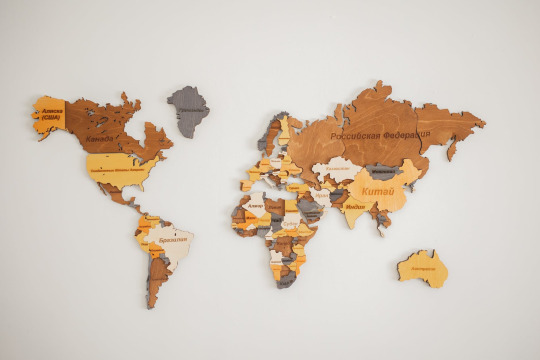
View On WordPress
0 notes
Text
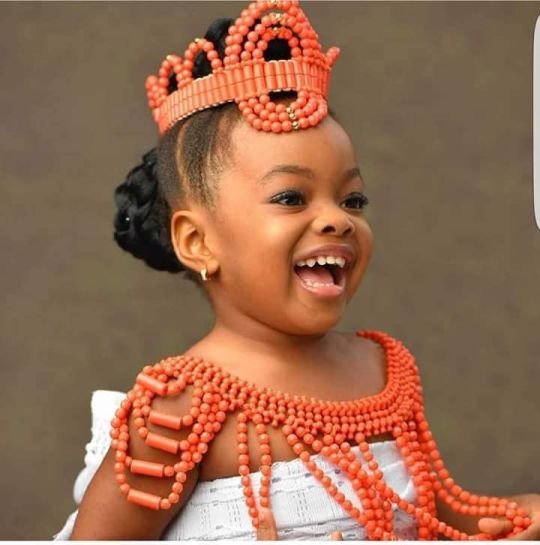
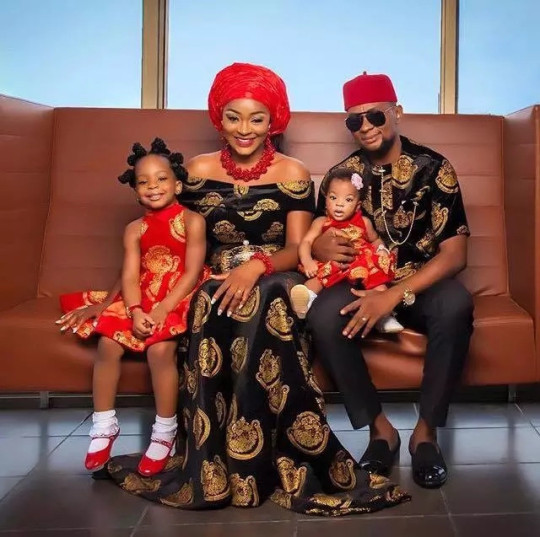
Onicha Ado N’idu; Naming rites and traditions of the Igbo of Nigeria
What is in our names?
The Igbo are one of the three major tribes of Nigeria and comprise the largest group of people living in southern region of the country.Igbo culture is a magical amalgamation of steadfast customs, ancient practices, Nka (artistry), religious beliefs, birth, marriage and death rituals, language, music and dance forms, as well attire and cuisine. The culture of the Igbo modifies our thoughts, speech, actions and artefacts to the extent that we are easily distinguished from other ethnic groups.
In Igbo traditional society, a naming ceremony, Igu Afa, occurs on the 8th day after a child’s birth. Paternal grandparents officiate the ceremony and it begins with ancestral recognition and divination, followed by the name giving. Wine libations are then poured in deference to our ancestors and also to notify them of the child’s name. This is followed by the breaking of kola nuts and prayers and the ceremony, which traditionally lasts an entire day, ends with a family procession.
In Igbo land, there is great significance in a name – a name is more than just an appellation or a stamp of identity. Our names bear a message, a meaning, a story, an observation, a history, a life experience or a prayer. They embody a collective of my people’s rich heritage and provide a window into our value systems and life philosophies. We believe that God, man and destiny are intertwined. Chi is our personal God who resides within the individual and presides over our destiny, Eke is the principle of creation and destiny apportionment and Uwa is the world as we know it. This sacred trinity is woven into our names and moulds us into who we are.
Onicha Ado N’idu offers a viewing facet into our culture, our naming rites and how these appellations shape who we are. How a culture survives depends on its people’s capacity to learn and transmit it to succeeding generations. Through Nka, I hope to provide viewers with an understanding of who we are as a people and seek to learn more about my tribe and my country as a whole
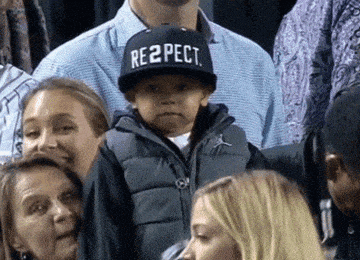
What is in their names?
1. NWABUNDO | MY CHILD IS MY SHELTER AND PROTECTION
She is a sanctuary and gives eternal strength to those that she holds dear.
2. OKEDINACHI | DESTINY LIES WITH THE ALMIGHTY
She is ordained with the gift of eloquence and is destined to achieve great things in life.
3. SOMADINA | I AM NOT ALONE IN THE PHYSICAL AND SPIRITUAL WORLD
She is iconic and her strength is derived from the people that surround her.
4. EZIAMAKA | THE GOOD PATH IN LIFE (THE PLACE YOU WENT TO WAS GOOD)
She embodies peace, good health and wealth.
5. OLUCHI. GOD’S HANDWORK
She sees the beauty in the world around her; creation of man can never equal that of God.
6. SOMTOCHUKWU | JOIN ME IN PRAISING GOD
She celebrates in life, always, because although there may be misfortunes along the way, the sun always rises in the morning.
7. UGONMA | BEAUTIFUL EAGLE
The eagle is the royal bird of the Igbo people and rules the sky. In the same fashion, Ugonma has fearless dominion over her life and seeks not to dwell but rather, she strives to overcome.
8. APUN’AWU | DON’T GO OUT IN THE SUN
A delicate being, to remain unspoiled by the sun so as not to lose her beauty. Apun’Awu’s story is one of preservation of all things that we hold dear.
9. NKIRUKA | THE FUTURE IS GREATER THAN THE PAST
What lays ahead of you is far greater than what is behind. She looks ahead for greater things to come.
10. NONYELUM | STAY WITH ME
We yearn for companionship when faced with grief or death. The fragility of the human mind in such a state is comforted through the bonds of a companion.
#african names#nonyelum#nkiruka#apun awu#african#igbo#igbo names#african name ceremony#afrakan#kemetic dreams#afrakans#africans#brown skin#african culture#afrakan spirituality#chi#ibgos
44 notes
·
View notes
Text
How to Write Your Name in Nsibidi?
If you’re interested in using Nsibidi to write your name or any other written content for purposes such as tattoos, branding, T-shirt designs etc, this article will help you find the best approach to achieve your goal.
What is Nsibidi/Nsibiri?
Nsibidi is an ancient writing system that has been in use for centuries in Southeastern Nigeria by the indigenous peoples, such as the Ejagham,…
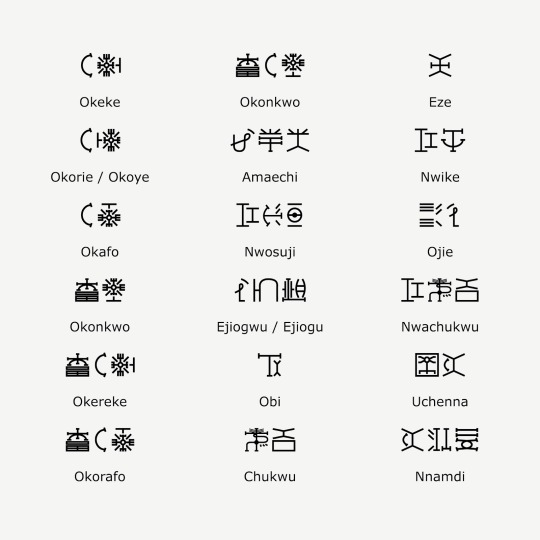
View On WordPress
24 notes
·
View notes
Text
And people keep trying to justify Israel's existence on the basis that it is somehow a safe place for the preservation of Jewish people and their culture and not only is that an awful argument for establishing a Settler Colonist Apartheid State but it's not even true. Like the state is politically and economically dominated by Ashkenazi Jews from Northern Europe and their descendants. While not as severely mistreated as Palestinians, there is still a significant disparity between the European and Non-European Jews in terms of income and education. Non-European Jews are still regularly subject to interpersonal bigotry (hell earlier this year there was a news story about a viral video where Ashkenazi girls in a Purim made a skit mocking the Mizrahi) and Israel government policies towards non-Ashkenazi migrants have done severe damage to their social structure and cultural traditions. Not to mention the fact that the whole reason why many Mizrahi migrated in the first place was to escape the violence caused by European Jews committing atrocities in their name, tearing communities apart as neighbours that had peacefully co-existed for centuries found themselves on opposite sides of this new ethno-religious conflict
There have even been attempts in Israeli history at the forceful assimilation or even biological reduction of non-European Jews; the kidnapping and adoption of Yemeni Jewish children in the 1950s is significant example of the former while the forced contraception of Beta Israeli (Ethiopean Jewish migrants) with the explicit intention of reducing their population's birth rate is an example of the latter. There's also very clear favouritism when it comes to recent converts; white Afrikaner converts are given the right of Aliyah while Nigerian Igbos are not. Like the fact of the matter is that Israel's fundamental nature is as a European Settler Colony, incredibly racist not only towards the indigenous Palestinians but the many Non-European Jews it claims to represent. It's an outpost of Western Imperialism, not a haven for the Jewish people. If it was ever meant to be the latter than it has failed miserably
6K notes
·
View notes
Text
IGBO NAMES OF ANIMALS BOTH WILD AND DOMESTIC
IGBO NAMES OF ANIMALS BOTH WILD AND DOMESTIC
According to the creation as recorded in the Holy books; God created everything and gave man the authority to name the creatures including the animals. On the same account, each item, grasses, even the cooking utensils we use has its names in our local dialects.
On this article, we shall be concentrating on one of the largest populate from the Eastern region of Nigeria – the IGBO.
English and…
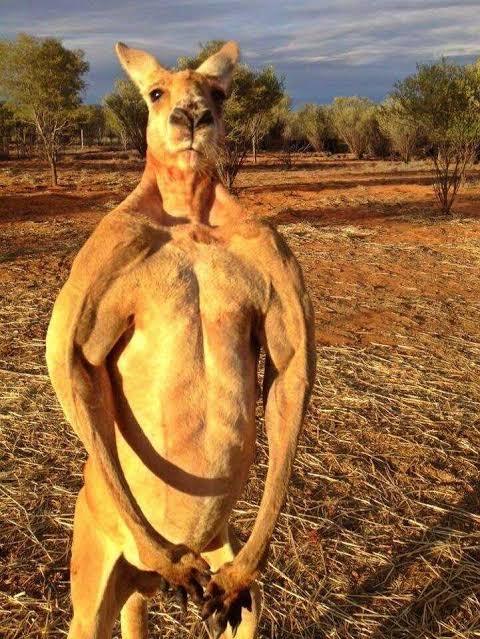
View On WordPress
0 notes
Text
Slimcase Biography - Age, Career, Education, Early Life, Family, Songs, Albums, Awards, And Net Worth
Slimcase Biography – Age, Career, Education, Early Life, Family, Songs, Albums, Awards, And Net Worth
Slimcase Biography – Age, Career, Education, Early Life, Family, Songs, Albums, Awards, And Net Worth
Let us discuss Slimcase’s Biography in terms of his Age, Career, Education, Early Life, Family, Musics And Net Worth and much more.
Slimcase (born Oluwafemi Oladapo on August 22, 1982) is a 40-year-old Nigerian recording artist, rapper, songwriter, hypeman, and actor.
Slimcase, who had…

View On WordPress
#Featured#How old is slimcase?#Is slimcase a Igbo?#Just In#Picks#Slimcase#slimcase -- help#slimcase -- help mp3 download#Slimcase Biography#slimcase ft portable#slimcase net worth#slimcase net worth 2022#slimcase review#slimcase songs#What is the real name of slimcase?#What tribe is slimcase?#which tribe is slimcase
0 notes
Text
Title: "The Significance and Diversity of African Names"
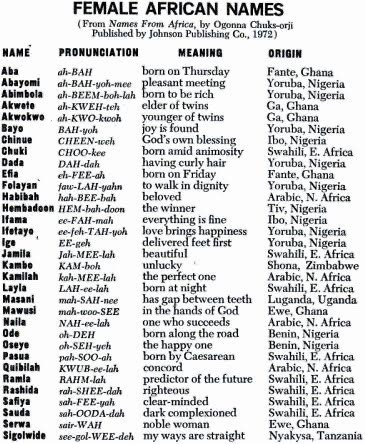
Introduction
African names are a reflection of the continent's incredible diversity, culture, history, and traditions. With over 2,000 distinct languages spoken and a multitude of ethnic groups, Africa is a treasure trove of names that carry deep meanings and unique stories. In this article, we'll explore the rich tapestry of African names, their significance, and the cultural diversity they represent.
The Importance of Names
Names hold a special place in African societies. They are more than mere labels; they encapsulate a person's identity, heritage, and often convey messages of hope, aspiration, and blessings. African names are deeply rooted in the belief that a name can shape a person's destiny and character.
Linguistic Diversity
Africa's linguistic diversity is astounding, with thousands of languages spoken across the continent. Each language group has its distinct naming traditions, resulting in a vast array of names. For example, in West Africa, Akan names such as "Kwame" (born on a Saturday) and "Kofi" (born on a Friday) are common, while in East Africa, Swahili names like "Amina" (trustworthy) and "Nia" (purpose) are prevalent.
Meanings and Symbolism
African names are rich in meaning and symbolism, often reflecting the circumstances of a child's birth, their family history, or the aspirations of their parents. Names can signify virtues like courage, strength, and wisdom or convey hopes for a prosperous and fulfilling life.
Family and Heritage
In many African cultures, names are chosen to honor ancestors, celebrate cultural heritage, or connect the child to their roots. This practice ensures that generations remain connected to their family's history and traditions. For example, the Igbo people of Nigeria often use "Ngozi" (blessing) to convey the hope for a blessed life..
Naming Ceremonies
Naming ceremonies are significant events in many African communities. These ceremonies are joyous occasions where family and friends gather to celebrate the birth of a child and bestow a name. The rituals and customs associated with these ceremonies vary widely, showcasing the diversity of African naming traditions.
Modern Influences
In today's globalized world, African names are not confined to the continent. Many people of African descent living outside Africa proudly bear African names, celebrating their cultural heritage and contributing to the global recognition of the beauty and significance of these names.
Conclusion
African names are a testament to the continent's diversity, culture, and history. They carry profound meanings, connect individuals to their heritage, and celebrate virtues and aspirations. As we embrace and appreciate the beauty of African names, we also acknowledge the importance of preserving and passing on these cultural treasures to future generations, ensuring that the rich tapestry of African identity remains vibrant and thriving.
1. **Kwame (Akan, Ghana):** A male name meaning "born on a Saturday."
2. **Ngozi (Igbo, Nigeria):** A unisex name meaning "blessing" or "good fortune."
3. **Lulendo (Lingala, Congo):** A male name meaning "patient" or "tolerant."
4. **Amina (Swahili, East Africa):** A female name meaning "trustworthy" or "faithful."
5. **Kwesi (Akan, Ghana):** A male name meaning "born on a Sunday."
6. **Nia (Swahili, East Africa):** A unisex name meaning "purpose" or "intention."
7. **Chinwe (Igbo, Nigeria):** A female name meaning "God owns" or "God's own."
8. **Mandla (Zulu, South Africa):** A male name meaning "strength" or "power."
9. **Fatoumata (Wolof, Senegal):** A female name meaning "the great woman."
10. **Kofi (Akan, Ghana):** A male name meaning "born on a Friday."
These are just a few examples, and there are countless other African names with unique meanings and significance. It's essential to remember that Africa is incredibly diverse, and each region and ethnic group has its own naming traditions and languages, contributing to the rich tapestry of African names.
The most popular African names among Black Americans can vary widely based on individual preferences, family traditions, and regional influences. Many Black Americans choose names that connect them to their African heritage and celebrate their cultural roots. Here are a few African names that have been embraced by some Black Americans:
1. **Malik:** This name has Arabic and African origins and means "king" or "ruler."
2. **Amina:** A name of Swahili origin, meaning "trustworthy" or "faithful."
3. **Kwame:** Derived from Akan culture, it means "born on a Saturday."
4. **Nia:** A Swahili name representing "purpose" or "intention."
5. **Imani:** Of Swahili origin, it means "faith" or "belief."
6. **Jamal:** This name has Arabic and African roots and means "handsome."
7. **Ade:** A Yoruba name meaning "crown" or "royalty."
8. **Zuri:** Of Swahili origin, it means "beautiful."
9. **Sekou:** Derived from West African languages, it means "fighter" or "warrior."
10. **Nala:** This name is of African origin and means "gift."
It's important to note that while these names have African origins, their popularity among Black Americans can vary by region and individual choice. Additionally, some Black Americans choose to create unique or hybrid names that blend African and American influences, reflecting their personal and cultural identities. The naming choices among Black Americans are diverse and reflect the rich tapestry of their heritage and experiences.
African Languages: A Tapestry of Diversity and Culture"
Introduction
Africa is a continent known for its stunning natural landscapes, diverse wildlife, and rich cultural heritage. Among its many treasures, the continent boasts an astonishing linguistic diversity that is often overlooked. In this article, we delve into the fascinating world of African languages, exploring their diversity, cultural significance, and the challenges they face in a rapidly changing world.
The Linguistic Kaleidoscope
Africa is home to over 2,000 distinct languages, making it one of the most linguistically diverse regions on the planet. These languages belong to several different language families, including Afroasiatic, Nilo-Saharan, Niger-Congo, and Khoisan, each with its unique characteristics.
Niger-Congo Family: The vast majority of African languages, including Swahili, Yoruba, Zulu, and Kikuyu, belong to the Niger-Congo language family. This family stretches across West, Central, and Southern Africa, reflecting the continent's linguistic richness.
Afroasiatic Languages: Arabic, a member of the Afroasiatic family, has a significant presence in North Africa, while other Afroasiatic languages like Amharic are spoken in the Horn of Africa.
Nilo-Saharan Languages: Found in parts of East and North Central Africa, Nilo-Saharan languages include Dinka, Kanuri, and Nubian.
Khoisan Languages: These languages, characterized by their unique click consonants, are primarily spoken by indigenous groups in Southern Africa, such as the San and Khoi people.
Cultural Significance
African languages are not just tools of communication; they are repositories of cultural heritage and identity. They carry the history, stories, and traditions of their speakers. Each language is a key to unlocking the rich tapestry of African cultures, from oral storytelling and folklore to religious rituals and traditional medicine
Preserving Cultural Diversity
Despite their cultural importance, many African languages are endangered. The rise of global languages like English, French, and Portuguese, often due to colonial legacies, has led to the decline of indigenous languages. To address this, efforts are being made to document, preserve, and revitalize endangered African languages through education, community initiatives, and technology.
A Language of Unity
In some regions, African languages are a means of fostering unity. For example, Swahili, a Bantu language with Arabic influences, serves as a lingua franca in East Africa, promoting communication and cooperation among diverse ethnic groups.
Challenges and Opportunities
While African languages face challenges in an increasingly interconnected world, they also offer unique opportunities. Embracing linguistic diversity can strengthen cultural identities, promote inclusive education, and drive economic growth through multilingualism.
Conclusion
African languages are an integral part of the continent's rich heritage and cultural tapestry. They represent the diversity of Africa's peoples and their traditions. While challenges exist, there is hope that efforts to preserve and celebrate these languages will ensure that they continue to thrive, enriching the world with their unique beauty and significance. In an increasingly globalized world, Africa's linguistic diversity is a testament to the resilience and vibrancy of its cultures.
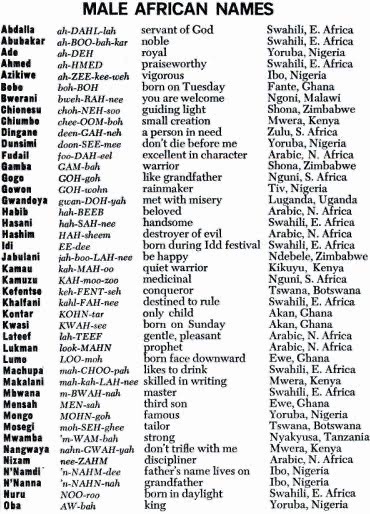
#life#animals#culture#aesthetic#black history#history#blm blacklivesmatter#anime and manga#architecture#black community#language
699 notes
·
View notes
Text
It's so charming how the linguistic names of cats in many languages usually derive from the sounds they make, much how like words for "mother" are derived from sounds babies would first use as they try to talk.
"Miut" -- Ancient Egyptian feline goddess, derived from the high meowing sound cats make.
"Mao" Chinese Mandarin, for the sound cats make as well.
"Hurairah" --Old Arabic, word for kitten that seems to have derived from the sound of how cats purr.
"Pishik" Azeri, seems to be from a cat's purr as well, and similar to the Persian words for cat "Pishi" and "Mamooshi", and Kurdish "Pishila".
"Nwanwa" -- Igbo for kitten. "Pusi" is the word for an adult cat.
"Billee" is Hindi for cat, also seems to have the vowel ending many cultures have for the feline species. There have been studies as to how cats are more likely to respond to names ending in "ee" than any others.
It's interesting how some words are similar to the "purr" sound, as opposed to the harsher and more plaintive "meow" sounds used in other cultures.
176 notes
·
View notes